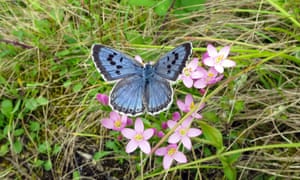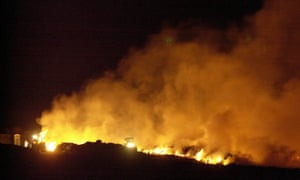One of the joys of this summer has been watching my four-year-old twins learn to swim: from as water-resistant as cats to as playful as porpoises in six weeks. They are fortunate because their granny is a swimming teacher. And she’s got time on her hands – having just been made redundant.
She lost her job because her school couldn’t afford to repair its pool. Parents at another local primary with a pool are desperately raising money to save it. A third public pool near me is also threatened with closure because it is 29 years old. I was a kid when it was opened by Princess Diana, and remember the sensation – wow, it’s got a wave machine! It’s still a marvellous pool for children.
The coverage of drowning tragedies at Camber Sands and around Britain’s coastline has highlighted the lack of funds for coastguards and lifeguards, but a bigger issue is the lack of money for swimming lessons. The death of the endurance athlete Nick Thomas, who got into trouble while trying to swim the Channel, shows that even good swimmers are vulnerable; but how many of last year’s 321 accidental drownings could have been prevented if everyone could swim?
Swimming is a tiny, neglected part of the national curriculum. Schools must simply ensure that by the age of 11, pupils can swim 25 metres unaided. Despite this, the Amateur Swimming Association found in 2014 that more than a thousand primary schools didn’t provide any swimming lessons, and 45% of children start secondary school unable to swim.
I can’t think of another form of exercise that is also a life-saving skill, a supreme pleasure, and the closest gravity-bound creatures like us can get to weightlessness. We need more lessons, and real-world water skills such as how to handle rips – and take selfies in front of enormous waves without killing ourselves. Learn-to-swim vouchers for non-swimming children and adults would be hugely popular.
And I’m not saying that because I know a brilliant swimming instructor with no one to teach for the first time in decades.
Large blues all round

A century ago one of Britain’s top seasonal sports involved enthusiasts descending on grassy fields and lunging around in pursuit of their passion: collecting butterflies.
One rarity, the large blue, suffered from over-collecting as well as habitat loss. Eventually, in 1979, it became extinct. This summer, after four decades of conservation effort led by the scientist Jeremy Thomas, who reintroduced it from Sweden, the large blue is flying in greater numbers than at any time since the 1930s – 10,000 butterflies at Gloucestershire Wildlife Trust and Royal Entomological Society’s Daneway Banks nature reserve and Somerset Wildlife Trust’s Green Down have laid more than a quarter of a million eggs.
Saving this one species has helped many rare orchids and beetles. It also gives nature-lovers the most precious commodity of all: hope.
Cull Britannia
Post-truth politics is all the rage, but policymaking that ignores scientific fact and expert judgment was pioneered back in 2013, the first year of the badger cull.
This year the government is extending it to five new locations in the West Country to supposedly reduce bovine TB in cattle. A new book, Badgered to Death, reveals a largely forgotten historical fact: the foot and mouth crisis of 2001 caused the slaughter of 6 million livestock, and a frantic restocking operation as farms moved cattle – and bovine TB – across Britain. Suddenly the number of cattle slaughtered for TB spiked by 300%, from under 5,000 to more than 20,000. Though cows, not badgers, are the biggest spreader of bovine TB, this unscientific and expensive cull continues.




